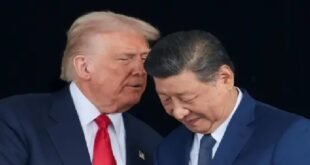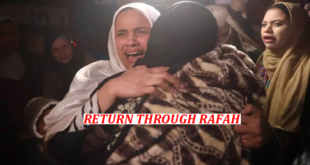04-05-2023
Bureau Report + Agencies
NEW DELHI/ LONDON: India, Cambodia and the Philippines are among the most dangerous places in the world for human rights and labour activists with protests against corporate abuses often met with state-backed violence, according to a new report.
 Brazil topped the list of the most dangerous countries with 63 recorded attacks against activists in 2022, followed by India and Mexico with 54 and 44 attacks, respectively, according to the report released on Wednesday by the UK-based Business & Human Rights Resource Centre.
Brazil topped the list of the most dangerous countries with 63 recorded attacks against activists in 2022, followed by India and Mexico with 54 and 44 attacks, respectively, according to the report released on Wednesday by the UK-based Business & Human Rights Resource Centre.
Cambodia had 40 recorded attacks, followed by the Philippines and Honduras with 32 and 31 attacks, respectively, the report said.
Belarus, Peru, Colombia and Uganda were the next most dangerous countries with between 17 and 28 attacks each.
The Business & Human Rights Resource Centre said 75 percent of the more than 550 attacks recorded worldwide were linked to people protecting land, climate or environmental rights, and one-fifth of the attacks were against Indigenous activists.
Mining was the most dangerous industry, linked to 165, or 30 percent, of the attacks.
While the Business & Human Rights Resource Centre said it was difficult to identify the perpetrators of the attacks, it was able to link 235 incidents, or 43 percent of cases, to a multinational company or their subsidiaries.
 India, which is set to host the G20 summit in September, had the greatest number of companies linked to attacks, in which a firm could be identified.
India, which is set to host the G20 summit in September, had the greatest number of companies linked to attacks, in which a firm could be identified.
The companies included JSW Steel, one of India’s top steel and coal manufacturers, whose plans to construct a steel plant in the eastern state of Odisha have been opposed by residents since 2018.
Activists said the project poses a threat to the area’s environment and residents’ health and threatens to displace traditional industries like betel vine farming.
Villagers protesting the plan have been met with “severe police repression” that has resulted in the arrest of more than 1,000 residents and activists, the nonprofit group said.
The other companies named in the report are United Arab Emirates-based Otterlo Business Corp, French oil company TotalEnergies, Honduras-based mining company Inversiones los Pinares and Cambodia-based gaming company NagaWorld.
In a statement, JSW Steel said that its proposed plant uses less than 2.5 acres of private land and the land owners agreed to hand it over with the permission of the local government.
 “The name of the people mentioned in the mail, and referred as HRDs are from the village Dhinkia,” the company said in the statement, which Business & Human Rights Resource Centre posted on its website.
“The name of the people mentioned in the mail, and referred as HRDs are from the village Dhinkia,” the company said in the statement, which Business & Human Rights Resource Centre posted on its website.
“It may be noted that, only 45 acres of the Government land from village Dhinkia are included in the project as against the total land requirement of 3160acres. There is not a single displacement from the Dhinkia village. Contrary to the claim of the Dhinkia, the rest of the villages are happy with the R&R and the project activity that would provide socio-economic improvement of the area.”
“It won’t be prudent on the part of the company to comment on the police actions which is beyond JSW’s control, however it may please be noted that in any country, whether developed, developing or under developed, nobody has the right to take the law into their own hand; if such a situation arises the police maintain the law and order of the society,” JSW Steel added.
“JSW Group has a comprehensive Sustainability Framework. As part of this framework, JSW has policy on Indigenous peoples and Resettlement and commits to fair and just compensation.”
 Pressmediaofindia
Pressmediaofindia




